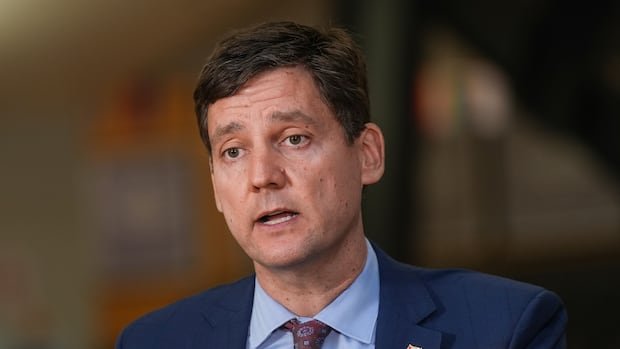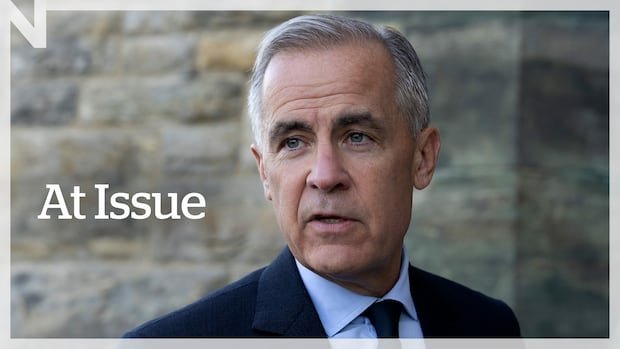B.C. Premier David Eby is ruling out new retaliatory measures against the United States after it slapped an additional tariff on softwood lumber but said his government will maintain countermeasures already in place.
“We think that striking out on our own is not going to be the best path forward,” Eby said in an interview on Rosemary Barton Live that aired Sunday morning. “But we’re maintaining the restrictions that we put in place.”
Those restrictions include removing all American alcohol from British Columbia-run liquor stores and removing U.S. companies from public procurement.
“And we’re going to continue that until there’s resolution of this issue with the Americans at the table,” Eby told host Rosemary Barton.
On Tuesday, the U.S. slapped a 10 per cent tariff on Canadian lumber on top of a 35 per cent tariff already in place — a move that prompted Eby to call for help from the federal government to protect forestry workers.
B.C. Premier David Eby says Canadian lumber now faces higher tariffs going into the U.S. than lumber from Russia, and the higher tariffs going into effect must be treated by Ottawa like a national emergency.
The next day, Industry Minister Mélanie Joly said support for the softwood lumber sector can be expected soon and will include funding distributed from banks but backed up by the Business Development Bank of Canada.
Eby said he’s pushing hard to get that support for forestry workers and that the money from Ottawa needs to start flowing immediately.
“These companies are on a knife’s edge. Shifts are already being curtailed. People are already losing employment and the work needs to be deployed now,” the premier said.
Andy Rielly, board chair of the Independent Wood Processors Association of British Columbia, told Barton that “it’s a very serious situation” because if B.C. loses small and medium-sized lumber companies, they “aren’t going to magically come back.”
“That’s what I’m truly concerned about because not only primary sawmilling in British Columbia, but the value-added sector is pretty important to the future of the forest business in British Columbia.”
Tensions within Team Canada?
As the Canada-U.S. trade war rages on, Team Canada showed some signs of strain this week over where its focus should be and how to respond to U.S. President Donald Trump’s unrelenting duties.
Eby expressed some anxiety on Tuesday about the situation, saying that provinces like Ontario and Quebec are often front of mind for federal leaders — leaving B.C. and issues that primarily affect British Columbians all but forgotten.
At Issue this week: How will the federal government keep a united front as tariff turmoil pits premiers against each other? The Liberals move on bail reform. And Pierre Poilievre accuses the RCMP of protecting Justin Trudeau from criminal charges.
When asked whether he’s concerned about presenting a divided front, Eby told Barton he thinks it’s crucial that all premiers are on Team Canada — and that different regions can disagree with one another without losing sight of the key goal to strengthen the country’s economy.
“We’re all pushing in the same direction,” Eby said. “We’re going to have disagreements about emphasis and tactics, and that’s normal.”
Ontario Premier Doug Ford called on the federal government this week to hit the U.S. hard if Canada can’t cut a trade deal. He also said he’s “sick and tired of sitting and rolling over.”
On Thursday, Prime Minister Mark Carney said his government is not considering hitting U.S. goods with more retaliatory tariffs because there are signs that bilateral talks on relief are headed in the right direction.
“There’s time to hit back and there’s time to talk. And right now, it’s time to talk,” Carney said. “We’re having intense negotiations.”


